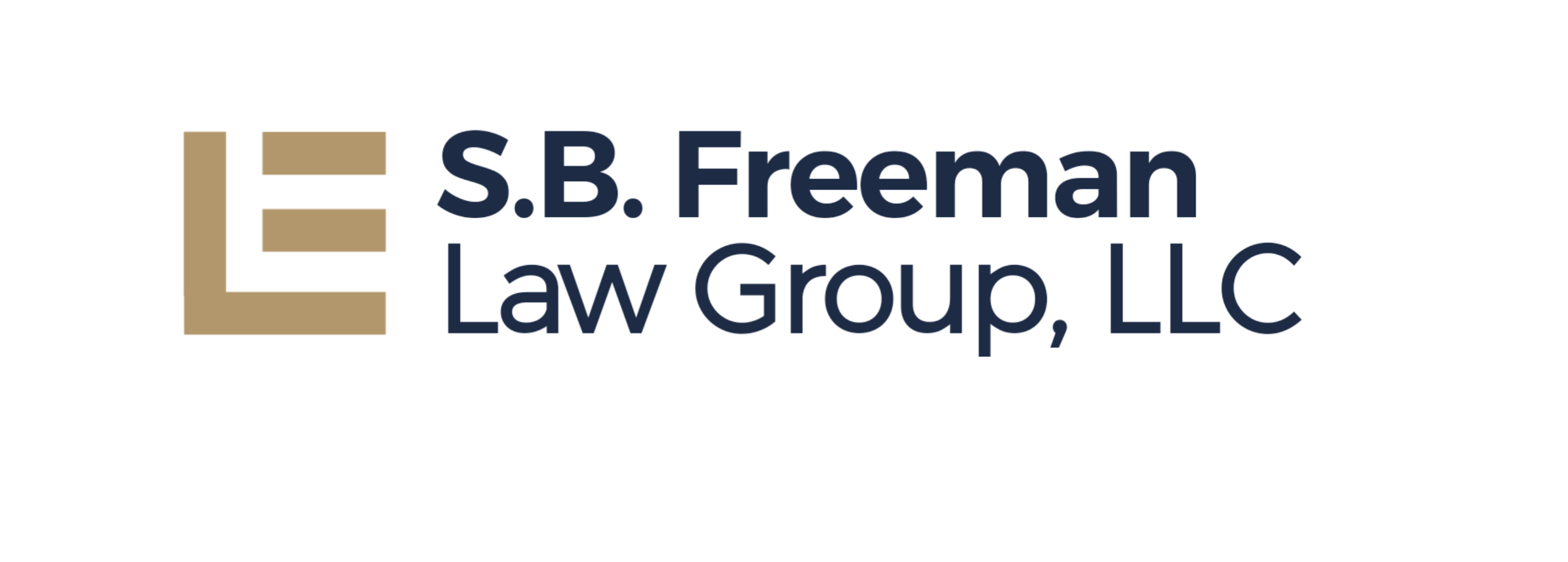On October 1, 2025, numerous laws passed during the Maryland General Assembly’s 2025 session will go into effect. Many of these laws will impact the practice of criminal, consumer protection, estates and trusts, family, immigration landlord and tenant, and property law.
The following bills go into effect October 1, 2025.
Criminal Law
- HB179/SB11: Provides that multiple thefts committed by the same person in multiple counties under one scheme or continuing course of conduct may be joined and prosecuted in any county in which any one of the thefts occurred, and prohibiting one or more persons from committing a series of thefts from retail merchants over a 90-day period with an aggregate value exceeding $1,50. It also requires a court to make a finding as to whether a certain crime is organized retail theft under certain circumstances for a certain purpose.
- HB236/SB92: Expands the relief that may be included in a final peace order and alters the acts that constitute criminal harassment to include certain visual surveillance of an area of another person’s residence where the other has a reasonable expectation of privacy. It also provides that a person who violates the Act is guilty of a misdemeanor and on conviction for a first offense is subject to imprisonment of up to 90 days or a fine of $500 or both, and for a second or subsequent offense, imprisonment of up to 180 days or a fine of $1,000 or both.
- HB241/SB142: Clarifies that “spouse” includes a former spouse for purposes of disclosure of confidential communications occurring during marriage and establishes that a spouse, who is the alleged victim, is competent to disclose a confidential communication between spouses occurring during their marriage in a criminal action in which one spouse is charged with a crime against the other spouse.
- HB246/SB205: Specifies that certain provisions of law relating to confidentiality do not prohibit the disclosure of certain information relating to adult protective services or the disclosure of the identity of certain persons making certain reports under certain circumstances. It also expands the definition of “health practitioner” to include certain emergency medical providers and authorizes individuals who are required in specific instances to report information regarding alleged vulnerable adults to make a report by calling the statewide reporting hotline.
- HB259/SB202: Requires a DNA sample to be collected in a certain manner from an individual who is required to register as a sex offender and prohibits a DNA sample from being tested and placed in a certain statewide DNA database system until certain conditions are met.
- HB260/SB1009: Alters the penalties for a person using or possessing with intent to use, delivering or selling under certain circumstances, or manufacturing or possessing with intent to deliver or sell under certain circumstances drug paraphernalia to inject, ingest, inhale, or otherwise introduce into the human body a controlled dangerous substance and removes intent to administer a controlled dangerous substance from a certain list of intents.
- HB293: Alters requirements under which a court is authorized to order that the testimony of a child victim be taken outside a courtroom and shown in the courtroom by closed circuit television in certain child abuse cases and requires the testimony of a child victim taken by closed circuit television within the courthouse be in a setting that reasonably mitigates the likelihood the child victim will suffer emotional distress.
- HB302: Expands provisions of law relating to a certain investigation and recommendation by a State’s Attorney concerning the filing of a statement of charges against certain professionals to include certain human service workers.
- HB413/SB925: Authorizes a person who is at least 21 years of age to manufacture a personal use amount of cannabis products or concentrated cannabis for personal use or adult sharing at a private residence if the manufacturing process does not involve the use of a volatile solvent and specifies that manufacturing, distributing, dispensing, or possessing certain large quantities of certain controlled dangerous substances is a felony. It also alters the penalties for being a volume dealer and drug kingpin with regard to cannabis.
- HB437/SB348: Alters the definition of “private place” to include a residence, as it relates to the prohibition on conducting visual surveillance with prurient intent of an individual without their consent, and alters the prohibition against conducting visual surveillance with prurient intent.
- HB442: Expands the evidentiary rule on the admissibility of out-of-court statements made by child victims or witnesses to make an out-of-court statement made by a child to a forensic interviewer admissible.
- HB853: Allows individuals to file a motion to reduce the duration of a certain sentence if they were convicted between the ages of at least 18 and under 25, were not sentenced to life, are not sex offenders, have served at least 20 years of the term of confinement, and were not convicted of murder involving a victim who was a first responder who was killed in the line of duty.
- SB432: Authorizes the filing of a petition a certain amount of time after the completion of the sentence and adds to the list of misdemeanor convictions that a person may expunge under certain circumstances. It also prohibits the Maryland Judiciary Case Search from in any way referring to the existence of a charge of possession of cannabis if the conviction was later pardoned by the Governor.
- SB181: Requires the Maryland Parole Commission to consider the age of incarcerated individuals when determining whether to grant parole. It also alters how the Commission evaluates a request for medical parole and requires a risk assessment for an individual serving sentences for crimes of violence with an aggregate term of confinement of 40 years or more.
- SB207: Requires the Motor Vehicle Administration to revoke the driver’s license of a person who has been convicted of impaired driving that contributes to an accident, or fails to remain at the scene of an accident, that results in the death or life-threatening injury to another person and authorizes a person whose driver’s license is revoked under the Act or for homicide by motor vehicle while impaired to apply for license reinstatement after a certain period of time.
- SB443: Requiring that the prosecution for an offense of trafficking a regulated firearm be instituted within 3 years after the offense was committed and reclassifies the prohibition against transporting a regulated firearm into the State for the purpose of unlawfully selling or trafficking the firearm to be a felony.
- SB590: Alters the penalties and points assessments related to the offenses of reckless, negligent, and aggressive driving and adds certain motor vehicle offenses as elements that may contribute to charges for reckless or aggressive driving.
Consumer Protection
- HB107/SB49: Requires a person who makes an automatic renewal offer to allow a consumer to cancel the automatic renewal in a cost-effective, timely, and easy-to-use manner; requiring automatic renewal offers to be displayed in a certain manner and contain certain information.
- HB208: Prohibits a person that is a seller from advertising or offering for sale a digital good using certain terminology unless, before executing the sale, an affirmative acknowledgment is received from the purchaser or a certain clear and conspicuous statement is provided by the seller. It also establishes that a violation of the Act is an unfair, abusive, or deceptive trade practice subject to certain enforcement and penalty provisions.
- HB268/SB981: Specifies the percentage by which a hospital is required to reduce a patient’s out-of-pocket expenses under certain circumstances, adds to the notice requirements relating to a hospital’s financial assistance policy and prohibits a hospital from filing a civil action to collect a debt against a patient whose outstanding debt is at or below $500.
- HB428/SB349: Definines “medical debt” as a debt owed by a consumer to a provider of medical services, products, or devices, but does not include debt charged to a credit card except under certain circumstances and prohibits the creation of a lien on owner-occupied residential property by contract or as a result of a breach of contract for the payment of medical debt and applies the Act prospectively.
- HB431/SB413: Prohibits a consumer contract from setting a shorter time to bring an action under or on the consumer contract than required by the law of the State, but excludes certain entities from the application of this Act.
- HB820: Requires carriers, pharmacy benefits managers, and private review agents ensure that artificial intelligence, algorithm, or other software tools are used in a certain manner when used for conducting utilization review
- HB1020: Prohibits a consumer reporting agency from furnishing any consumer report containing certain adverse information relating to a consumer’s medical debt, or any collection action against a consumer for medical debt, or maintain a file on a consumer related to medical debt or collections. It also prohibits a person from using medical debt information from a consumer report for certain purposes and bars a health care facility, a health care practitioner, or an ambulance service from disclosing medical debt to a consumer reporting agency.
Employment/Labor Law
- HB15/SB144: Authorizes the formation of limited worker cooperative associations and establishes rules and procedures for the formation, governance, conversion, and dissolution of limited worker cooperative associations.
- HB1294: Subjects earned wage access products to the Maryland Consumer Loan Law and other provisions that regulate entities that provide consumer credit and restricts the acceptance of tips by certain lenders under certain circumstances, and regulates earned wage access service agreements.
- SB785: Alters the definition of “employer” to exclude employers who are covered by the federal Family and Medical Leave Act for the current year from being required to provide to employees a certain unpaid parental leave benefit in the State.
Energy/Environmental Law
- HB4/SB120: Prohibits a restriction on land use that increases the cost of installing a solar collector system by at least 5% over a certain cost or that reduces the efficiency of the system by at least 10% under a certain energy generation level and authorizes a community association to impose certain restrictions on the installation of solar collector systems in common areas or common elements. It also authorizes a community association to install a solar collector system in common areas or common elements under certain circumstances.
- HB121/SB37: Requires an electric company, other than a municipal electric utility, by February 1 each year, to submit a report to the Public Service Commission regarding each recorded vote cast by the electric company and any of its State affiliates at a meeting of a regional transmission organization.
Estates/Trusts
- HB88/SB158: Specifies the manner in which notice regarding an exercise of the decanting power or the sending of a document under the Maryland Trust Decanting Act is required to be provided.
- HB146/SB126: Authorizes the trustee of a trust to resign under the Maryland Trust Act on 30 days’ notice to qualified beneficiaries, the settlor, if living, all cotrustees, and any person that has a right to replace or appoint a successor to the resigning trustee.
- HB261/SB110: Prioritizes the payment of unpaid child support over certain other claims on an estate of a decedent with insufficient assets to pay all claims in full.
Family Law
- HB275: Alters the definition of “adjusted actual income” under the state child support guidelines by requiring the deduction, from actual income, of an allowance for support for each child in the parent’s home for whom the parent owes a legal duty of support but who is not subject to a support order and requires that the amount of a certain allowance be subtracted from a parent’s actual income before the court determines the amount of a child support award.
- HB929/SB721: Specifies that an individual may consent to the issuance of a permanent protective order against the individual.
- HB1191/SB548: Authorizes the court, in determining legal and physical custody in certain child custody proceedings, to consider certain factors and authorizes the court to modify a child custody or visitation order if the court determines that there has been a material change in circumstances since the issuance of the order that related to the needs of the child or the ability of the parents to meet those needs and that modifying the order is in the best interests of the child.
Immigration
- SB608: Alters the requirements for certification of a U Nonimmigrant Status Petition and alters the individuals eligible to request a certain official to certify victim helpfulness relating to certification of a U Nonimmigrant Status Petition. It also modifies the time periods within which a certain certifying entity shall certify or decline a certain form under certain circumstances; and requires a certifying entity to develop protocols to assist certain petitioners to take certain actions.
Landlord/Tenant Law
- HB273: Alters a prohibition concerning the maximum penalty for the late payment of rent that a landlord may charge in a residential lease to prohibit a penalty in excess of 5% of the amount of the unpaid rent rather than of the amount due.
- HB767: Requires a landlord to provide certain notice to a tenant when a court has issued a warrant of restitution for a failure of a tenant to pay rent, a breach of lease, or a tenant holding over under certain circumstances and establishes procedures and requirements for the execution of a warrant for repossession.
- HB785: Prohibits documents of certain cooperative housing corporations from prohibiting or restricting the establishment or operation of certain family child care homes and prohibiting documents of certain cooperative housing corporations from limiting the number of children for which certain family child care homes provide family child care below the number authorized by the State Department of Education
- HB1076: Requires a landlord to provide a tenant with written notice in a certain manner at least 24 hours in advance of when the landlord intends to enter a leased premises, except in the event of an emergency.
- HB1367: Establishes a civil penalty of up to $50,000 for a person who falsifies information that is submitted in a report of the results of lead-contaminated dust testing or visual inspection of an affected property.
- HB872/SB606: Clarifies that the circumstances under which liability for the failure to comply with certain requirements relating to a tenant’s right of first refusal to purchase residential property is restricted to the owner of the property and does not attach to the property.
- SB46: Requires a hearing to be held not more than 10 business days after a wrongful detainer complaint is filed and alters requirements relating to service of process in a wrongful detainer action.
Property Law
- HB124/SB160: Authorizes a seller or assignee of residential property to rescind a contract of sale without penalty at any time before closing if a certain seller does not provide a notice that they hold an equitable interest in the property and may not be able to convey property and establishes that an assignee is entitled to a refund of any deposit paid in connection with the assignment of a contract of sale of the residential property if the seller does not provide such notice.
- HB347: Alters certain provisions related to the filing, maintenance, and transmittal of land records, and defines a “land record” as any document recorded by a clerk of the circuit court relating to property.
- HB755/SB540: Prohibits a cooperative housing corporation, condominium association, or homeowners association from requiring certain sensitive information of certain individuals as a condition for access to a recreational common area. It defines “sensitive information” as an individual’s Social Security card or Social Security number, Individual Taxpayer Identification Number, birth certificate, racial or ethnic origin, national origin, citizenship or immigration status, religious or philosophical beliefs, or medical records.
- HB796/SB566: Increases the filing fee that must accompany an order to docket or a complaint to foreclose on a residential mortgage or deed of trust from $300 to $450.
- HB1018/SB689: Requires banking institutions, credit unions, mortgage lenders, mortgage lending businesses, and mortgage loan originators to include a provision in certain conventional home mortgage loans authorizing a borrower to purchase the property interest of another borrower in connection with a decree of absolute divorce if the lending entity determines that the assuming borrower qualifies for the loan.





